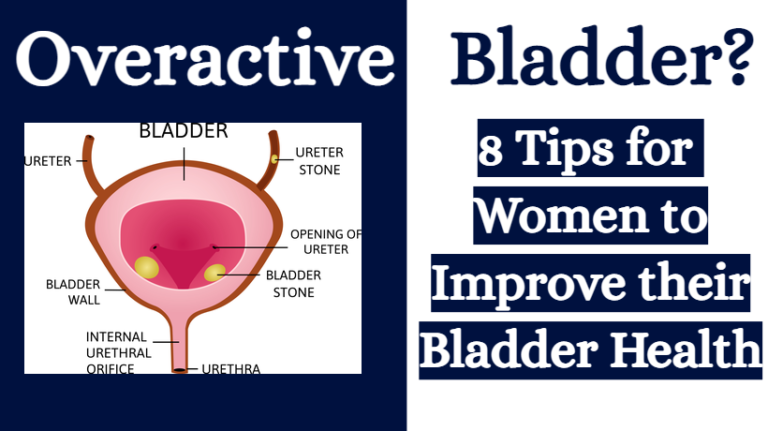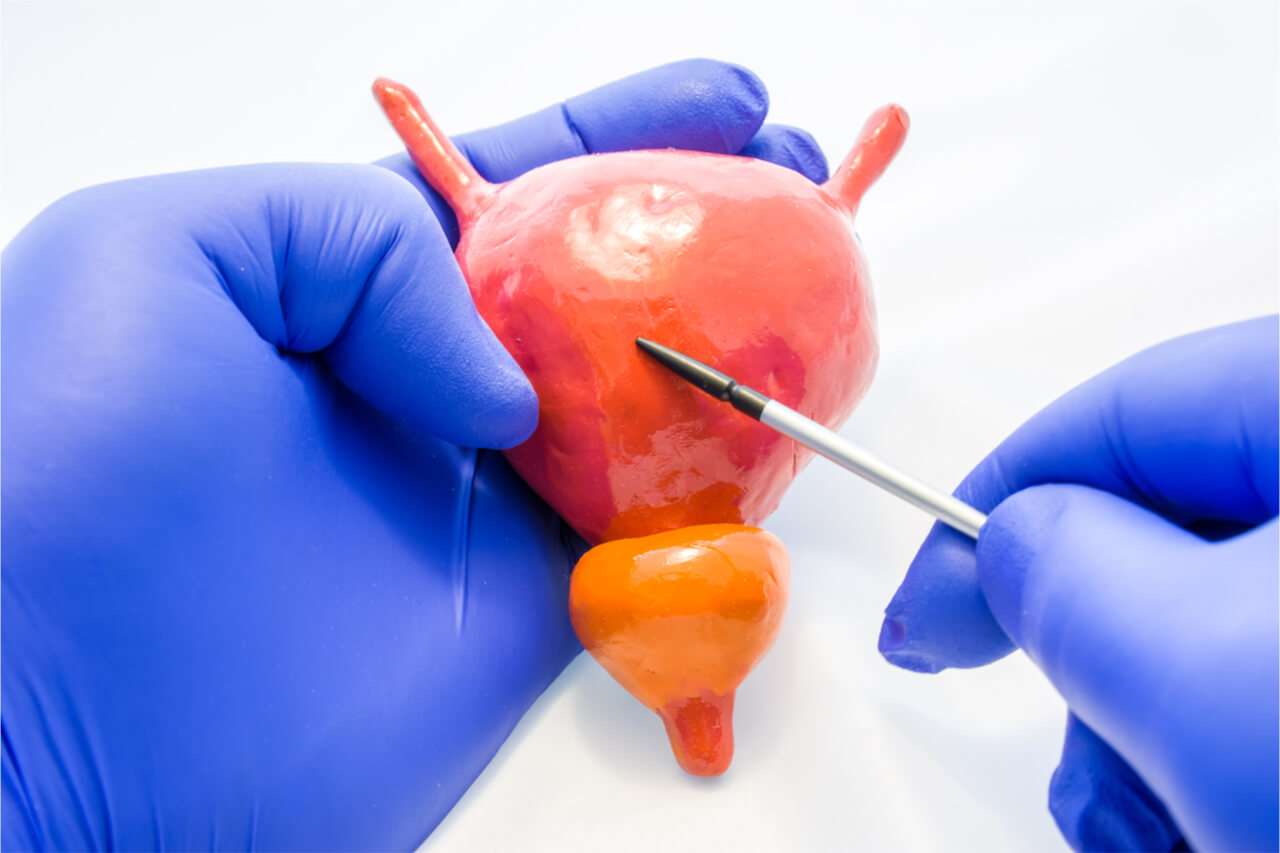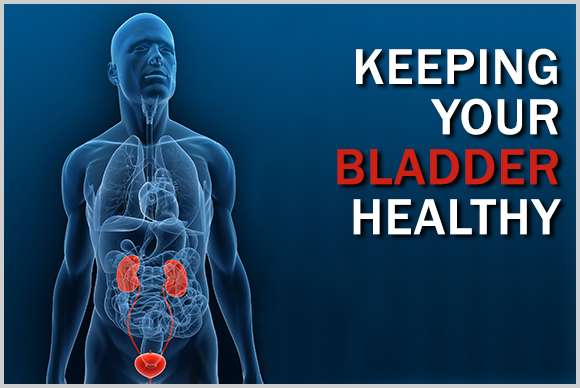Foods That Are Great For Bladder Health
Your bladder is an important part of the urinary tract system. Its an essential pear-shaped organ made out of expandable components that holds on to urine until its expelled from your body. The bladder itself is quite impressive and is able to stretch from about two inches to over six inches long, depending on the amount of liquid its holding.1 In a typical person, your bladder will reach capacity when it fills up with about 16-24 ounces of urine, but most people start to feel the urge to urinate when it is only 25% full.1 At this point, your body starts to send nerve signals to the brain indicating that its time to find a restroom. When you proceed to use the bathroom, there is a mixture of voluntary and involuntary muscles working to lead urine from the bladder, through the urethra, and out of the body.
Your bladder works hand-in-hand with your kidneys to filter fluid and wastes from the bloodstream. They are the primary parts of the urinary tract system. The . When your bladder isnt functioning properly, it can lead to a number of problems.
Nuts are a great, heart-healthy food that provides you with much needed protein and healthy fats. While most nuts are bladder friendly, certain nuts can cause irritation. For the best options, stick to almonds, cashews, and peanuts.
Choosing Healthier Drinks
Different Types of Tea
Certain Fruit Juices
Lemon Enhanced Water
Pelvic Floor Exercise Daily Workout
This Physical Therapist guided workout helps you:
- Strengthen your pelvic floor muscles
- Improve bladder control
- Improve bowel control and emptying
- Reduce prolapse symptoms
- Recover after pelvic floor surgery
- Prepare and recover from gynaecological surgery
- Maintain pelvic floor strength during pregnancy
- Recover after pregnancy and childbirth
What Can Impact Your Bladder Health
A number of things can affect the health of your bladder, many that you can control with a lifestyle adjustment, but others that you can’t. Here’s a list of factors that can impact your urinary health, some of which may cause bladder pain and discomfort.
Constipation: Constipation causes excess stool buildup in your colon, placing pressure on your bladder and keeping it from expanding as it should.
Diabetes: Diabetes can cause damage to the nerves surrounding your bladder that help with bladder control.
Low physical activity: Being physically active could help prevent bladder issues as well as constipation. It could also help you maintain a healthy weight.
Being overweight: When you’re overweight, it increases your risk of leaking urine.
Smoking: Bladder issues are more common among individuals who smoke. Smoking also increases your risk of bladder cancer.
Some medications: Specific drugs could increase the risk of your bladder leaking urine. For instance, medications intended to calm your nerves so you can relax or sleep could dull your bladder nerves, and you might not experience the urge to urinate.
Caffeine: Caffeine could bother your bladder, changing how your bladder informs you when it’s time to urinate.
Alcohol: Consuming alcohol could make your bladder issues worse.
Pelvic injury: Trauma like childbirth or prostate surgery could damage the nerves and muscles that control your bladder.
Recommended Reading: Medication For Overactive Bladder At Night
Discover Your Food Sensitivities:
Most people with gallbladder problems struggle to digest certain foods including eggs, pork, onions, dairy, gluten, coffee, corn and nuts. You can get lab work done or do biofeedback testing to see how you tolerate these foods. You can also try an elimination diet for 30 days where you remove these foods and see how your respond.
Overactive Bladder In Women

Women are more likely to report symptoms of OAB to their doctor. In fact, at least 40 percent of American women experience symptoms of overactive bladder. Many more may not report the experiences to their doctor at all.
Overactive bladder consists of a series of symptoms that cause you to need to urinate more frequently. These symptoms include
- feeling a sudden need to urinate
- not being able to control urination
- urinating at least two times every night
- urinating at least eight times every day
Its not clear what causes overactive bladder, but OAB becomes more common in women after menopause. That may be the result of estrogen deficiency. However, overactive bladder can occur at any age.
Overactive bladder is a common childhood condition, but not every accident or soiled bed is the result of OAB. Children frequently grow out of overactive bladder symptoms, but treatment can help prevent frequent urination or complications.
Symptoms of OAB in children include:
- an urgent or frequent need to urinate
- accidents or leaking urine
- urinating more than eight times in a day
- not feeling as if theyve emptied their bladder despite urinating
Symptoms of OAB become less common as children get older. With age, kids learn to properly control their bladder and recognize signals that they need to urinate. If symptoms of overactive bladder dont seem to be resolving or are getting worse, talk with your childs doctor.
Causes of OAB in children include:
- urinary tract infection
You May Like: Medications That Cause Overactive Bladder
Tip #: Avoid Bladder Irritants
Could your diet be affecting your bladder health? Absolutely! Making lifestyle changes when it comes to your diet is one of the easiest ways you can improve your bladder health. The foods and fluids you consume throughout the day greatly impact how your bladder functions and can even increase your risk of various types of incontinence. Certain foods and liquids are common causes of bladder irritation, that in turn can cause the bladder to spasm. The spasming can increase the discomfort in your pelvis, creating a strong urge to void.
Foods to avoid include coffee , tea, carbonated beverages, alcohol, citrus fruits , tomato based products , and certain spices. If you cut back on these irritating foods but are still experiencing symptoms of an overactive bladder, keeping a bladder diary can be helpful in evaluating what food or fluids might be causing your symptoms.
Another good tip for improving bladder health is to prep your bladder by starting your day with 8oz of water. This helps to dilute your urine, creating a more stable environment for the foods you will consume the rest of your day. Moderate physical activity, 3-5 times a week, can also greatly improve any sorts of bladder control problems you may be experiencing.
Tips To Get Your Bladder Under Control
Take control of your bladder
Do you find yourself struggling to make it to the bathroom in time? Urinary incontinence is a common condition. Your doctor can help you understand whats causing it and recommend a treatment plan.
Lifestyle changes can also help get your bladder under control. Learn about six steps you can take to reduce your risk of accidents and help you get back to enjoying everyday activities, leak-free.
Don’t Miss: Can A Bladder Infection Cause Incontinence
Daily Pelvic Floor Exercises
These can be really effective at reducing leakage, but itâs important to do the exercises properly.
You can feel your pelvic floor muscles if you try to stop the flow of urine when you go to the toilet. To strengthen your pelvic floor muscles, sit comfortably and squeeze the muscles 10 to 15 times in a row. Avoid holding your breath, or tightening your stomach, buttock, or thigh muscles at the same time.
When you get used to doing pelvic floor exercises, you can try holding each squeeze for a few seconds. Every week, you can add more squeezes, but be careful not to overdo it, and always have a rest in between sets of squeezes.
You may have to do these exercises for 3 months before you see any benefits.
Pelvic floor exercises are most effective when tailored to the person. Continence and womenâs health or pelvic floor physiotherapists can assess your pelvic floor function and design an exercise program to meet your needs. Ask your GP for a referral.
The Continence Foundation of Australia has produced this video on how to do pelvic floor exercises:
The Continence Foundation of Australia has produced these videos to help explain the function and role of the pelvic floor muscles:
Read Also: Natural Supplements For Bladder Health
Losing Weight May Help To Improve Your Bladder Control
Excess weight puts extra stress on your pelvic floor muscles and contributes to an overactive bladder and loss of bladder control. If you can lose even a small amount of weight, it will help with bladder control.
The best weight loss plans are always those that set realistic goals combined with healthy eating habits and physical activity. Fad diets, although often successful short-term, rarely achieve sustainable weight loss, because once you tire of the diet, you often revert to ingrained unhealthy eating habits.
Donât Miss: How Do You Lose Control Of Your Bladder
Read Also: How Do You Diagnose Overactive Bladder
Urinate Completely To Avoid Urinary Tract Infections
Women are especially prone to urinary tract infections, which can also involve the bladder. One way to reduce your risk is to make sure that you urinate completely, says Gopal Badlani, MD, of the Wake Forest University Baptist Medical Center in Winston-Salem, North Carolina, and a specialist in bladder issues. If you tighten your muscles to stop urinating too soon, the urine that didn’t quite escape will head back to your bladder, which can bring bacteria into your system.
What Is Overactive Bladder
First, if youre not familiar with the term, you may want to know more about overactive bladder , which is sometimes referred to as urge incontinence. OAB is an urge to urinate that often cant be controlled or stopped.
The most common symptoms of OAB are:
- Incontinence
- Having to wake up and urinate several times during the night
- Needing to go to the bathroom more than usual during the day
- Inability to hold urine
Recommended Reading: Natural Cure For Bladder Infection
Speak Freely About Your Bladder Health
Tell your healthcare provider about your symptoms. You may feel embarrassed but keep in mind, your healthcare provider is used to hearing about all kinds of problems. They are very common and there are a number of treatments available.
Many bladder conditions can be handled through simple lifestyle changes, behavior modifications, medication, bladder retraining or surgery. If you feel you may have symptoms, be sure to talk to your doctor or health care provider.
Drink Plenty Of Water

Knowing that roughly 60% of the human body is water, its already important that you drink more than enough. The recommended amount of water that individuals should consume daily is eight 8-ounce cups. Another good marker is to drink enough water to urinate at least once every three to four hours. Having the optimal fluid intake will concurrently keep your organs hydrated and strengthen bladder muscles after use.
Recommended Reading: Nivolumab Bladder Cancer Fda Approval
What Are The Specific Symptoms Of Overactive Bladder
Overactive bladder represents a collection of symptoms that can include:
- Urinary urgency: This is a failure to be able to postpone the need to urinate. When you feel you need to urinate, you have a limited amount of time to get to a bathroom.
- Frequency of urination: People who experience this symptom need to urinate very often. Typically its an increase in the number of times you urinate compared to what you previously experienced.
- Urge incontinence: In this case, there can be a leakage of urine when you get the urge to urinate.
- Nocturia: This symptom is characterized by the need to get up and urinate at least two times each night.
Tip #: Consider A Personal Trainer
As women, we hear a lot about Kegel exercises as a great way to strengthen our pelvic floor muscles. However, this is often not enough. The pelvis is a network of muscles and fascial structures all working together to hold our organs in the correct location and function properly. Many life events, surgeries, and injuries can alter how our pelvic floor muscles and our pelvic structures work. Weakness or tightness in the pelvic floor and surrounding muscles can cause urinary incontinence, genital pain, constipation, pain with intercourse, and pelvic organ prolapse.
Seeing a pelvic floor therapist can be a great tool in maximizing how your pelvis operates. These physical therapists have gone through extra training in the pelvic arena and have a better overall understanding of how these structures work together. Because all individuals and bodies are unique, the pelvic floor PT will develop a treatment plan geared towards your particular symptom improvement.
Don’t Miss: Do Kegels Help With Bladder Control
Food And Bladder Cancer
Given the lining of the bladder may be exposed to dietary carcinogens excreted in the urine, a number of studies have investigated the impact of dietary components on bladder cancer specifically. While some dietary components may be carcinogenic, findings suggest others can have a protective effect against bladder cancer. The main points of knowledge at this stage, bearing in mind this is an ongoing area of research:
- Vegetables and fruit contain several substances that may protect against cancer, such as antioxidants, minerals, fiber, and organic compounds . It is likely that any protective effect against bladder cancer is due to a combination of effects, rather than a single substance.
- American Cancer Society guidelines for cancer risk reduction recommend a daily intake of at least 2.5 to 3 cups of vegetables and 1.5 to 2 cups of fruit .
Add Cruciferous Vegetables To Your Diet
Broccoli, cauliflower, Brussel sprouts, arugula, collard greens, turnips, and kale are known as cruciferous vegetables. Along with EVOO, these vitamin powerhouses have been shown to protect against cancer because they contain something called isothiocynates. These are potent antioxidants that fight cancer by protecting your cells from damage and fighting cancer-causing agents. They also help reduce inflammation, which can cause cancer, and they can also slow the growth of cancer. Cruciferous vegetables are good for your bladder, but also the kidney and prostate. So include lots of these vegetables in your diet. Keep in mind that they can lose their health benefits by up to 50 percent when cooked in water, so avoid boiling them. Instead, eat them raw or lightly steam them in a bit of extra virgin olive oil and garlic
Don’t Miss: What Does Carcinoma In Situ Of Bladder Mean
Cool Down On Spicy Foods
Spicy foods may taste great, but as many of us have experienced, they often lead to an upset stomach. Like caffeine, spicy foods work to irritate the bladder lining, causing an increased urgency to rush to the bathroom. If you love spice, you dont have to eliminate it from your diet but do your best to cut back on foods such as spicy Mexican dishes, hot wings, and horseradish.
Try This: If you cant live without the flavor in your life, speak with your healthcare provider to see what you can use to replace spicy foods.
Common Urinary Issues That Affect The Bladder
Some notable bladder and urinary health conditions include:
- Urinary tract infections. These infections can affect your kidneys, bladder, and urethra. Specifically, women are at greater risk than men for this issue. Some notable urinary tract infection symptoms include a strong urge to urinate, a burning sensation, discolored or cloudy urine, and trouble passing large amounts of urine.
- Urinary incontinence, or involuntary leakage, may occur when laughing, coughing, sneezing, exercise or holding urine in too long, and is sometimes a result of other pre-existing medical conditions.
- Enlarged prostate. Men with an enlarged prostate can experience a frequent need to urinate, trouble emptying their bladder, and frequent urination at night . Treatments for an enlarged prostate may include alpha-blockers to relax muscles, surgery, and physical therapy.
Also Check: Azo Bladder Control And Weight Management Reviews
Ways To Improve Your Bladder Health
Last month, we focused on preventing bladder problems, and now we are continuing National Bladder Health Month by addressing ways you can improve your bladder health. Many people living with bladder conditions arent aware of the various treatment options available to them. While treatments depend on the type of urinary incontinence or bladder condition you have, one of the specialists at Alliance Urology can help you identify the right treatment plan for you. In this blog, were explaining some of the most common treatment options that can help you improve your bladder health.
Key Points For Bladder Control

These tips and techniques can help reduce bladder urgency and urinary frequency and help to bladder control training. Its simply a matter of testing which techniques work best for you, particularly when combined with strong pelvic floor muscle contractions.
When incorporated into an effective bladder control training program, these bladder calming strategies and bladder control exercises can help to reduce and overcome bladder control problems.
Important: Bladder problems such as urinary urgency and/or urinary frequency can be caused by or associated with medical problems. If you experience urinary urgency or urinary frequency you are advised to speak with your medical practitioner about your condition before commencing bladder control training.
Also Check: Uncontrollable Bladder After Giving Birth
Don’t Miss: Does Lemon Water Help Bladder Infections
Sip A Glass Of Alcohol
Go ahead, enjoy a glass of wine or beer with dinner. Studies show that alcohol can lower your chances for gallstones and gallbladder cancer. Alcohol has been shown to raise levels of HDL, or âgood,â cholesterol. Some experts think that it may have an effect on the cholesterol in bile. But too much booze can harm the gallbladder, so limit yourself to no more than one drink a day for women and two drinks for men.